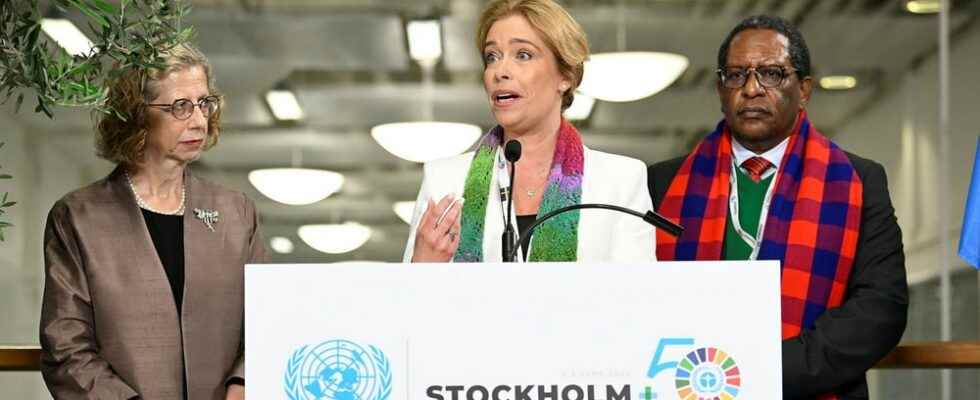The Stockholm + 50 environmental meeting will not be close to making an impression in history that is similar to what its 50-year-old predecessor left. Even then, in 1972, the then Prime Minister Olof Palme declared that it was in a hurry.
Everyone who spoke at the big environmental meeting Stockholm + 50 said about the same thing: We must increase the pace, we must act now, it is urgent. But it did not become so much more than words. Despite all the sharp wording, the distance between words and deeds is still stunningly large.
the purpose of the meeting was to “contribute to increasing the pace of existing commitments” and “lead to clear messages”. Those goals can not be said to have been achieved. The final document is a relatively general call on the countries of the world to do what has already been decided.
Stockholm + 50 is not a pure climate meeting, but is about a greater grip on the environment and sustainability.
Even before the meeting, there was criticism that the government had not made good enough preparations and that the objectives were unclear. The same criticism has been buzzing in the corridors of Älvsjömässan, where researchers, politicians and organizations have accelerated on their way to and from various debates and dialogues.
The political will and the driving force is absent, the government has been stingy and has not given a large enough budget for the preparatory work to succeed, were some opinions aired. At the same time, the importance of having international meetings is emphasized.
The fact that the government has not identified a number of key issues that are particularly important to address before the meeting has been criticized, as well as the fact that responsible ministers have not visited other countries to a sufficient extent to anchor issues ahead of the meeting.
Preparations are crucial for the success or failure of international meetings. It is important to find soulmates and anchor important points in advance to form alliances. Many of the difficult problems are solved in negotiations in bilateral meetings before the main meeting itself.
Before the climate summit in Paris The host country France conducted intensive diplomacy and those responsible traveled around the world to anchor goals. They received good help from the United States, which did the same and, among other things, got China on the train. Without that preparatory work, the world would probably not have reached a Paris Agreement.
Ahead of COP 26 in Glasgow last year, there were also intensive preparations. Alok Sharma, chairman of the meeting, visited about 40 countries and conveyed the messages that the host country Britain wanted to get through. They also managed to achieve results that no one expected in several areas.
Stockholm + 50 is not a pure climate meeting, but is about a greater grip on the environment and sustainability. This holistic approach has also been highlighted as an explanation for the fact that it would be difficult to pursue certain individual issues.
But there must reasonably be issues that are more important or more urgent than others, and would have been worth highlighting and reaching agreement on. Everyone knows it’s so urgent. The breadth of the meeting provided the chance to link the climate crisis with the threat to biodiversity and pollution, topics that are otherwise addressed at separate UN meetings.
Stockholm + 50 was not the blowtorch in the butt that the world would need. But it was possible to do an interesting trend research – an almost forgotten discussion that can make a difference gained new relevance at the meeting.
UN Secretary-General António Guterres, a master of forceful expression, said in his introductory speech: “Let us not forget that when we destroy a forest, we create GDP. When we overfish, we create GDP. GDP is not a way of measuring prosperity in today’s world. “
Variations on that theme were highlighted in many of the side events that were organized, from scientific reports to discussions and sustainable agriculture.
The talk that gross domestic product is a bad measure when it comes to sustainable development is not new, it was raised already ten years ago but has ended up in the shadows. But apparently the UN chief has decided to raise the issue again.
How that discussion develops can be interesting to follow. But otherwise Stockholm + 50 has probably not contributed to narrowing the gap between speech and action.
